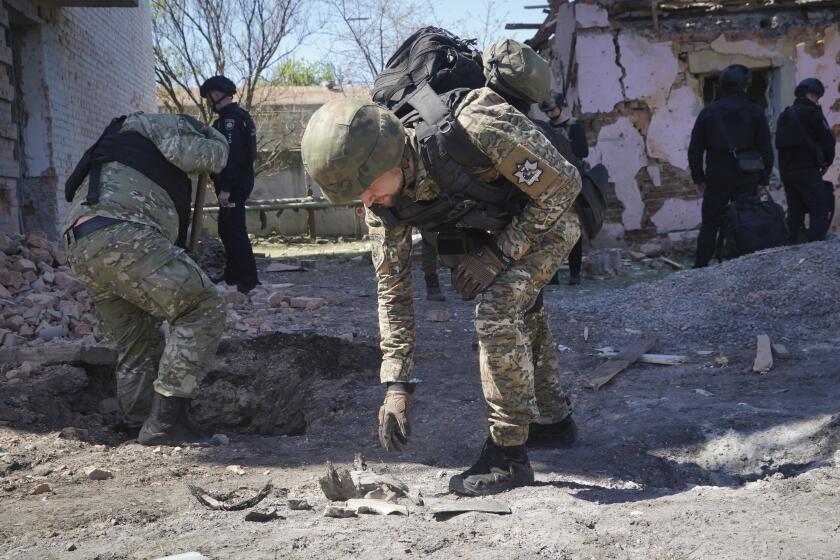Federal judge refuses to stay execution of Arizona death row inmate
A federal judge has rejected a bid to postpone the July 23 execution of an Arizona death row prisoner who contended that secrecy over the state’s lethal injection protocol violated his 1st Amendment rights.
U.S. District Judge Neil V. Wake ruled Thursday that Joseph Wood’s 1st Amendment claims were not likely to succeed.
Wood, 55, was sentenced to death for killing his estranged girlfriend and her father at a Tucson auto-body shop in 1989.
His motion for an injunction to stop his execution came as part of a civil rights complaint he filed along with five other Arizona death row inmates last month.
Dale Baich, Wood’s attorney, said in a statement that he planned to appeal to the U.S. 9th Circuit Court of Appeals to compel the state to disclose information about its execution process “before it conducts human experimentation on Mr. Wood.”
“By deliberately concealing necessary information from Mr. Wood, the Arizona Department of Corrections is violating the public’s 1st Amendment right to be informed about the manner in which the state plans to carry out the most serious penalty available in the criminal justice system,” Baich said.
The state argued that neither Wood nor the public had a 1st Amendment right to obtain the information sought.
The judge found that information already released to Wood about his execution — including the type of drug, the dosage and the expiration dates — was “sufficient for an ‘informed public debate’” over concerns about the drugs.
Wood sought more detailed information on his execution process, including the drug manufacturer and sources, information about the qualifications and certifications of personnel on his execution team, and documents detailing how the state developed its lethal-injection drug protocol.
Since 2011, Arizona has been using pentobarbital for executions, but the state sent Wood’s lawyer a letter in April saying it was using a new combination because it can no longer procure pentobarbital, according to the June complaint.
The complaint cited the Jan. 16 execution in Ohio of Dennis McGuire that was the first to use this drug combination.
Witnesses to the Ohio execution said “McGuire started struggling and gasping loudly for air, making snorting and choking sounds which lasted for at least 10 minutes, with his chest heaving and his fist clenched. Deep, rattling sounds emanated from his mouth,” according to the complaint.
Ohio’s executions are on hold while a federal court reviews the state’s execution protocol.
The complaint also stated that nearly one-third of the executions using midazolam have had problems, citing the executions of Clayton Lockett in Oklahoma and William Happ in Florida. Those executions went awry in similar ways — the prisoner appeared to fall asleep but then started moving.
The arguments by Wood’s attorneys are an example of an emerging legal tactic in death penalty cases. With states facing problems in getting supplies of lethal-injection drugs, they are altering procedures. Several botched executions have cast light on the issue — especially that of Lockett in April, who died of a heart attack 43 minutes after the lethal drugs were administered. Before he died, Lockett writhed, groaned and tried to speak, and officials had called off the execution.
In October, another federal judge ordered Arizona prison officials to disclose information on the drugs that would be used in two executions, saying the prisoners had a 1st Amendment right to such information. The information was released and both inmates were executed shortly after.
Follow @msrikris for the latest national news.
More to Read
Start your day right
Sign up for Essential California for news, features and recommendations from the L.A. Times and beyond in your inbox six days a week.
You may occasionally receive promotional content from the Los Angeles Times.






